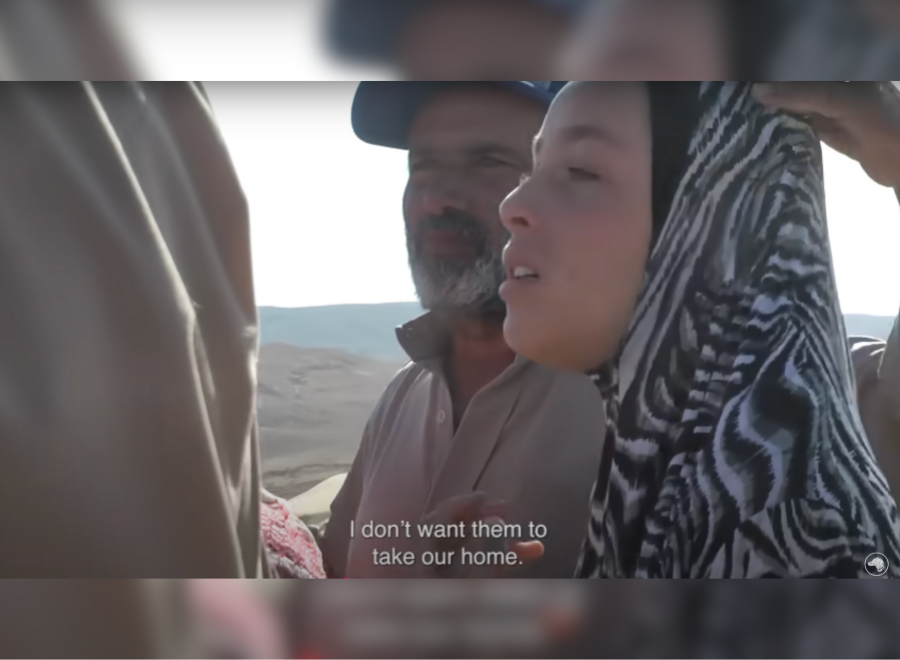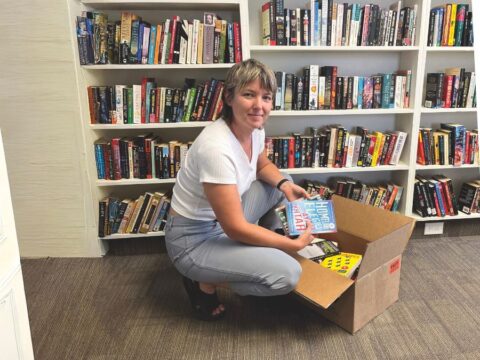Between 2019 and 2023, Palestinian activist Basel Adra filmed Israel’s military occupation destroying his community of Masafer Yatta, a collection of 19 Palestinian hamlets in the southern West Bank. In his co-directed film, No Other Land, we see bulldozers arrive and reduce houses and schools to rubble, along with their contents. We see Israeli soldiers destroying computers and confiscating film equipment. Pens holding sheep and chickens suffer the same fate, with animals either killed or confiscated. The community rebuilds after each attack.
Masafer Yatta is in Area C, an area of the Israeli-occupied West Bank that is under full military control. In the 1980s, Israel declared that part of Masafer Yatta would be used as a firing zone for military exercises, and a 2022 court ruling against the Palestinian residents paves the way for more than 1,000 people to be expelled from the area.
You may unsubscribe from any of our newsletters at any time.
In the film, Israeli settlers also intrude on the community, claiming property and livestock as their own.
While filming, Adra builds an unlikely alliance with Yuval Abraham, an Israeli journalist. Abraham seeks to share the story of Masafer Yatta with a wider audience, often to no avail, as media outlets are reluctant to engage with him. Meanwhile, Israel’s military continues its destruction. When the military comes face to face with Abraham, they question why he is even there. His response: “I will not let you do this in my name.”
Filmed prior to Hamas’s Oct. 7, 2023, attack on Israel, No Other Land chronicles the experiences of Palestinians in Masafer Yatta and holds up a mirror to the actions of the Israeli government. Will the world notice?
The film premiered at the Berlin International Film Festival in February 2024 before being distributed and shown in 24 countries, including at the Toronto and Vancouver International Film Festivals. It won the 2025 Academy Award for Best Documentary Feature, along with other international film awards. And yet, no major American distributors have taken it on.
More on Broadview:
-
United Church to consider naming Israel’s actions ‘apartheid’
- United Church urges Canada to stop arming Israel and support South Africa’s case at the International Court of Justice
While the Academy Award has increased the film’s profile, it’s also led to threats and violence.
Last month, No Other Land co-director Hamdan Ballal reported that Israeli settlers arrived at his home in the West Bank village of Susya and physically attacked him. He says Israeli forces later arrived, handcuffed and blindfolded him, and took him to an undisclosed location where soldiers beat him. He was released a day later. Israeli forces say they detained Ballal for throwing rocks. International observers reported that Ballal received no medical attention for his wounds while in custody.
Threats have also been made against Abraham and an independent theatre in Australia who planned to screen the documentary. In mid-March, the mayor of Miami Beach, Fla., threatened to evict an independent cinema company if they proceeded with showing the film. He later withdrew the threat, and the screenings went ahead.
Opponents of the film say it is antisemitic and undermines Israel’s right to exist. No Other Land is critical of the Israeli government’s practice of annexing more and more of the West Bank, in violation of United Nations agreements, making the film a lightning rod for disagreements about who is being oppressed and who is the oppressor.
But some commentators see No Other Land as a chance to grapple with some tough questions.
Russel Neiss, an American Jewish educator and technologist, wrote for the Jewish Telegraphic Agency of his longing to get beyond the boycotts and intentional silencing of the film to discuss the issues it raises: “…the hopelessness it left me with, the embarrassment of seeing home demolitions perpetuated in my name, and the struggle of balancing the Jewish values of … (responsibility for each other), with Torah’s ideals of equality, justice and human dignity.”
He challenges the Jewish community to also move beyond silence to grapple with the questions that matter: “If we want to heal, if we want to move beyond hurt, we need to start talking. Even when it’s uncomfortable…. Because that’s the only way we’ll ever get anywhere.”
American rabbi Alexander Davis, writing in TC Jewfolk, offered his perspective: “the best, and truly only way to respond to the movie is for Israel to address its treatment of Palestinians.” He says that “the abuses documented in the film have no place in the Jewish State, let alone in a land we call holy.”
As more and more people discover this film, I hope the global community will gain a better understanding what was happening in the Middle East before Oct. 7, 2023 — and lead us all to demand a world where both Palestinians and Israelis “shall sit under their own vine and fig tree, and none shall make them afraid,” as the prophet Micah says.
EDITOR’S NOTE: This story was updated on April 25 to add more background information about Masafer Yatta.
***
Rev. Keith Hagerman is a United Church minister interested in the intersection of film and spirituality. He lives in Kitchener, Ont.















Bibi, the Israeli PM continues to use his position to act as HE sees fit, slaughtering Palestinian people without one drop of empathy. He has a “one answer” reply to ANY critic – You are Anti-Semetic…
It would be my prayer (hope) that many more people , of all religions- will point out his crimes are not a real part of Judaism. Thanks for the article